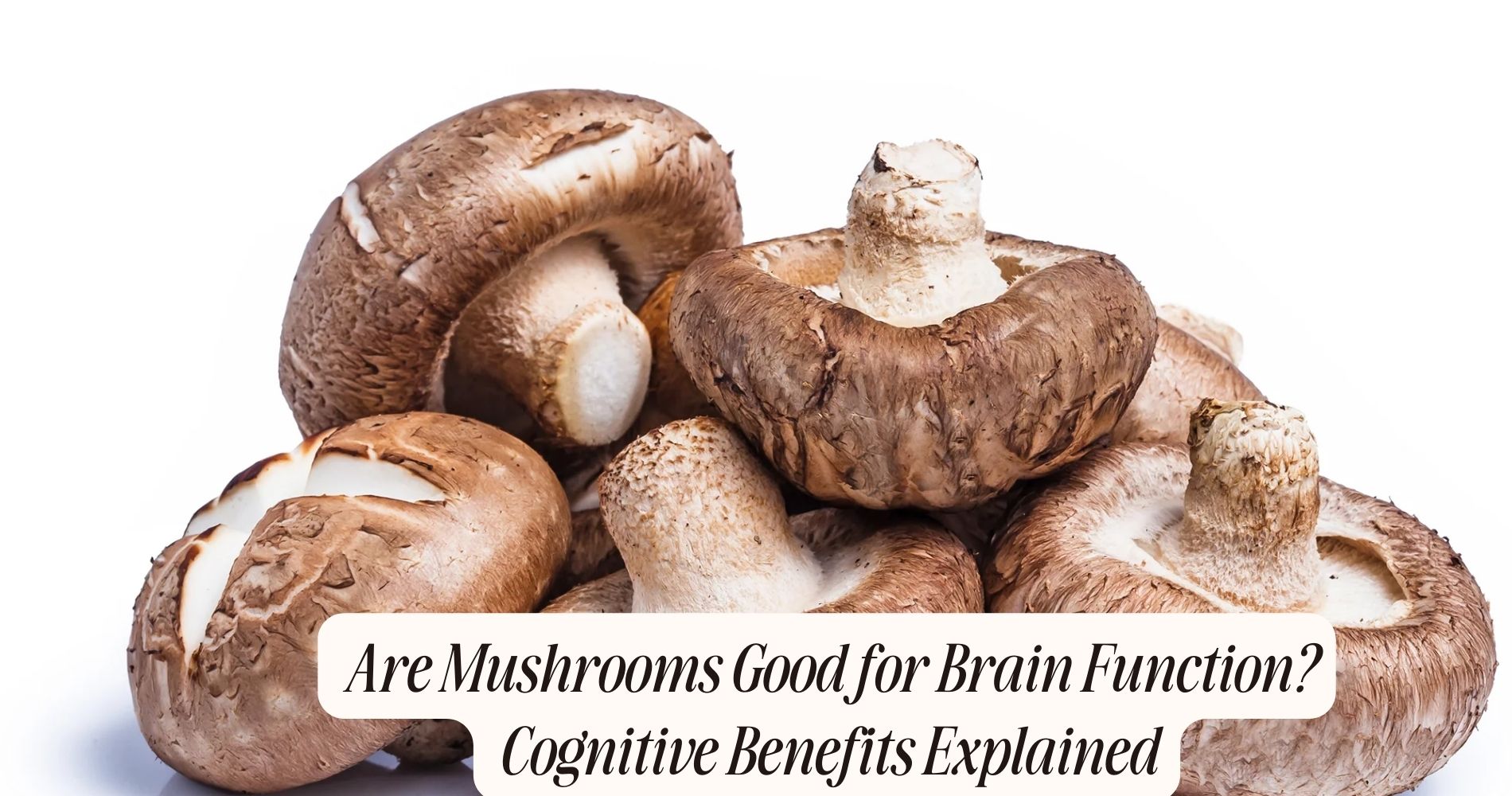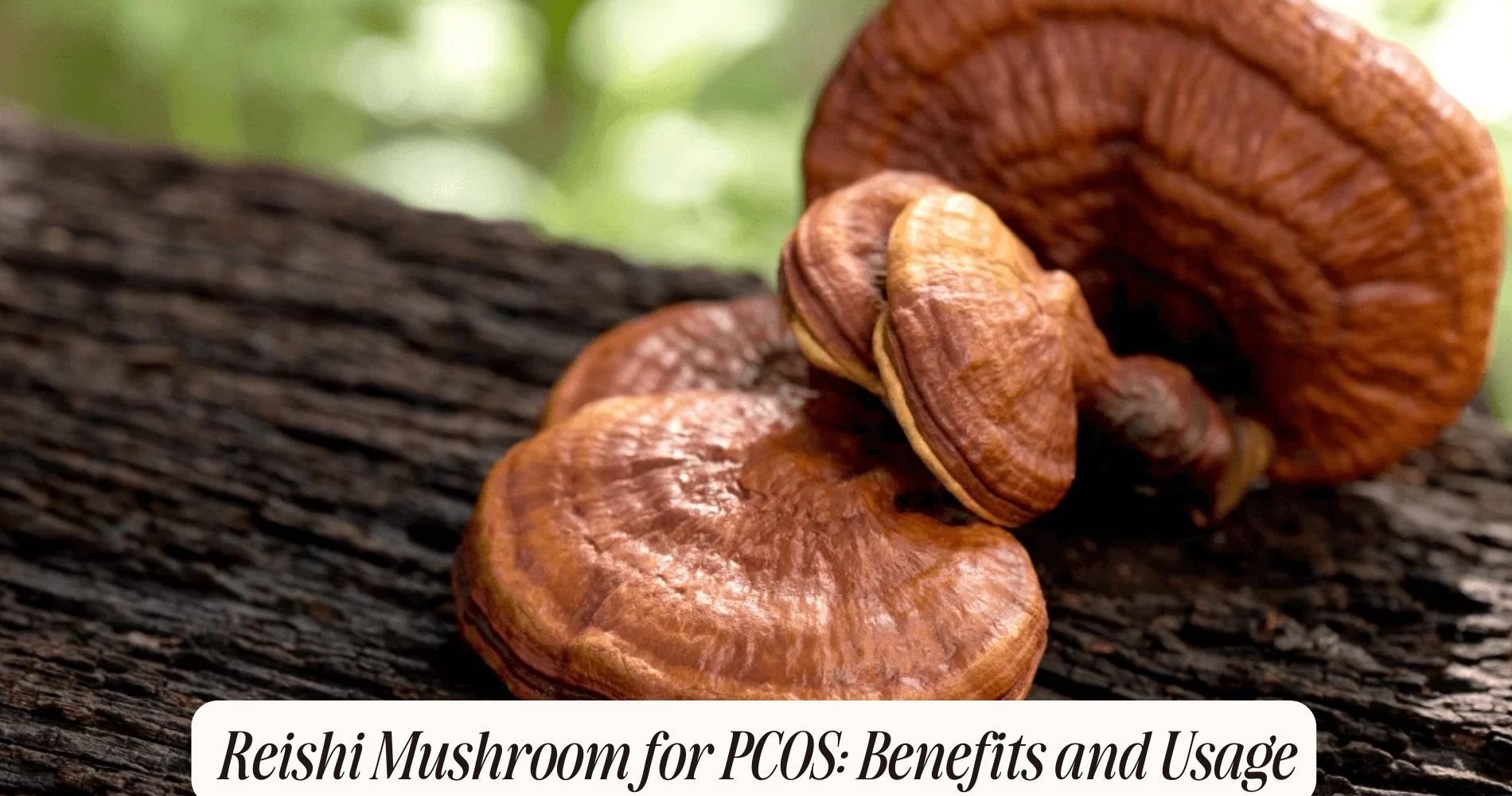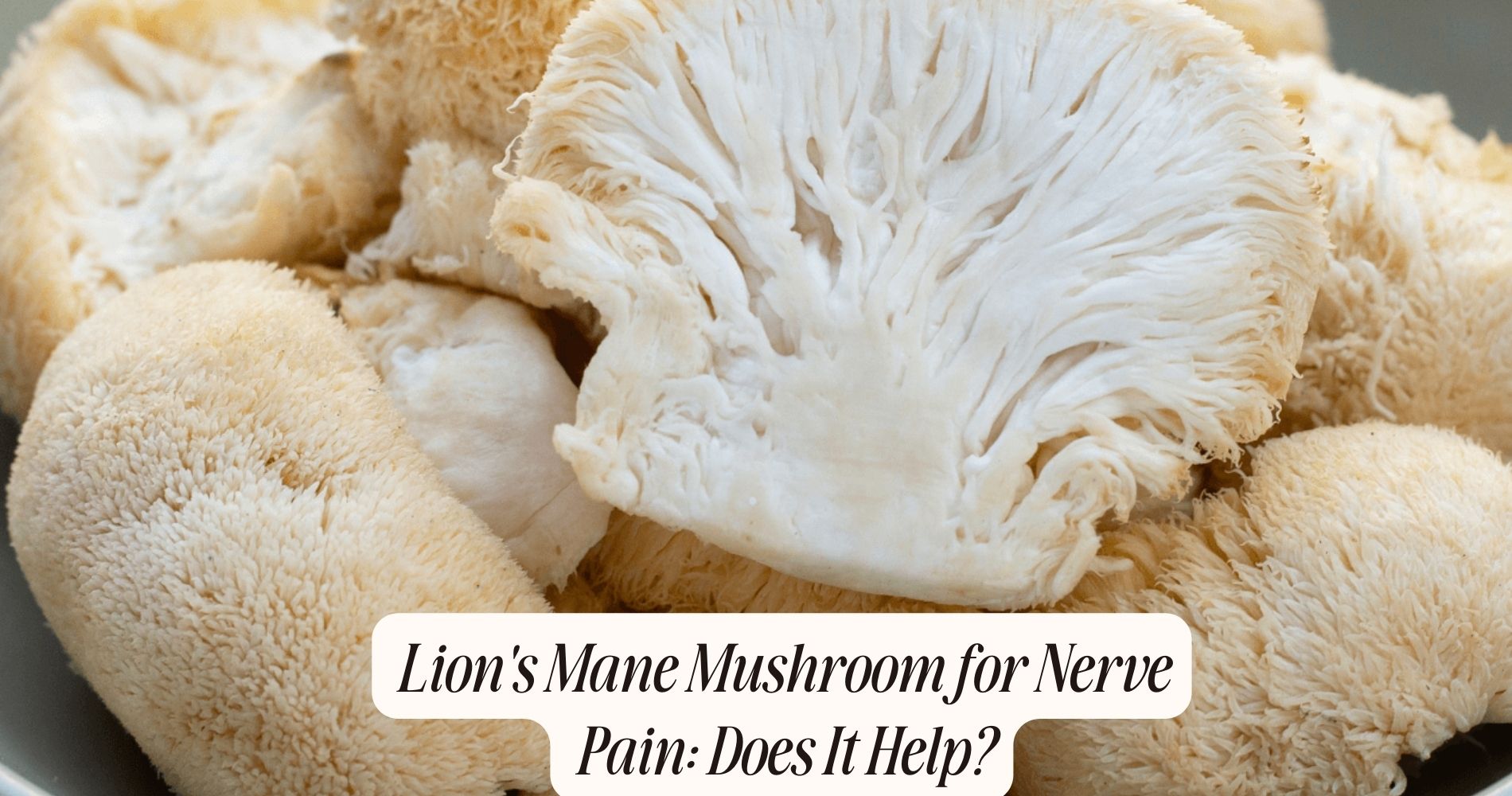
Are Mushrooms Good for Brain Function? Cognitive Benefits Explained
Are mushrooms good for brain function? Yes, mushrooms can greatly improve brain function and cognitive health. With high levels of B vitamins, antioxidants, and essential minerals like selenium, copper, and potassium, mushrooms support neurotransmitter synthesis and neuroprotection. Compounds such as beta-glucans, hericenones, and ergothioneine combat inflammation, oxidative stress, and stimulate nerve growth. These bioactive substances enhance memory, focus, and mental clarity, and help mitigate age-related cognitive decline. Lion's Mane, in particular, is noted for promoting neural plasticity and neurogenesis. If you're interested in a natural, evidence-based approach to brain health, incorporating mushrooms may be beneficial, and there's even more to uncover.
Historical Use of Mushrooms
Throughout history, various cultures have utilized mushrooms for their medicinal properties and cognitive benefits. You'll find that in traditional medicine, especially within Eastern practices, mushrooms like Reishi and Lion's Mane have been staples.
Reishi, known as Ganoderma lucidum, has been revered in Chinese medicine for over 2,000 years. It's not just folklore; scientific studies have validated its neuroprotective properties, emphasizing its role in enhancing brain function.

In ancient rituals, mushrooms held a significant place. The Aztecs referred to Psilocybe mushrooms as "teonanácatl," translating to "god's flesh". These mushrooms were used in sacred ceremonies, believed to facilitate spiritual enlightenment and cognitive expansion. Modern research supports these historical claims, showing psilocybin's potential for neurogenesis and its positive effects on brain connectivity.
Analyzing the historical context, you can see a pattern: cultures across the globe recognized and harnessed the cognitive benefits of mushrooms. This wasn't mere superstition; it was an empirical observation that modern science is just beginning to catch up with. By understanding the historical use, you gain insights into why mushrooms are being revisited today for their potential cognitive benefits.
Nutritional Profile of Mushrooms
Mushrooms boast a rich nutritional profile, packed with essential vitamins, minerals, and bioactive compounds that contribute to cognitive health. When you examine their vitamin content, you'll find that mushrooms are particularly high in B vitamins, including riboflavin (B2), niacin (B3), and folate (B9). These vitamins play important roles in neurotransmitter synthesis and energy metabolism, which are essential for maintaining ideal brain function.
Additionally, mushrooms exhibit notable antioxidant levels, which provide neuroprotective benefits. Antioxidants like ergothioneine and glutathione are abundant in various mushroom species, helping to combat oxidative stress and reduce the risk of neurodegenerative diseases. Studies have shown that oxidative stress can impair cognitive function, so consuming foods rich in antioxidants is crucial for brain health.
Moreover, mushrooms contain significant amounts of essential minerals such as selenium, copper, and potassium. Selenium acts as a cofactor for antioxidant enzymes, enhancing your body's ability to neutralize harmful free radicals. Copper is integral to iron metabolism and neurotransmitter synthesis, while potassium ensures proper nervous system function by maintaining electrical conductivity in the brain.
Key Compounds for Brain Health
Building on the impressive nutritional profile, specific bioactive compounds in mushrooms, such as polysaccharides and hericenones, have been identified for their potential to enhance cognitive function directly.
Polysaccharides, particularly beta-glucans, exhibit neuroactive properties by modulating immune responses and promoting neurogenesis. Research indicates that beta-glucans can reduce neuroinflammation, an essential factor in cognitive decline, by activating microglia and enhancing the production of anti-inflammatory cytokines.
Hericenones, primarily found in Lion's Mane mushrooms, have shown promising neuroactive properties by stimulating nerve growth factor (NGF) synthesis. NGF is critical for the maintenance, survival, and regeneration of neurons. Studies demonstrate that hericenones can cross the blood-brain barrier and promote neural plasticity, which is essential for cognitive function and brain health.

Moreover, ergothioneine, another significant bioactive compound in mushrooms, acts as a powerful antioxidant. It protects neural tissues from oxidative stress, which is implicated in neurodegenerative diseases. This compound's neuroprotective properties help maintain cellular integrity and improve cognitive resilience.
Mushrooms and Memory Enhancement
How do specific compounds in mushrooms contribute to memory enhancement and cognitive longevity?
Mushrooms contain bioactive compounds like hericenones and erinacines, especially prevalent in Lion's Mane, which stimulate the synthesis of nerve growth factor (NGF). NGF is essential for the maintenance and regeneration of neurons, directly impacting memory formation and cognitive longevity.
Traditional remedies have leveraged these neuroprotective benefits for centuries.
In traditional Chinese medicine, mushrooms have been integral in formulations aimed at enhancing cognitive function and preventing neurodegenerative diseases.
Modern research backs these traditional uses, showing that regular consumption of certain mushrooms can mitigate age-related cognitive decline.
From a culinary perspective, incorporating mushrooms into your diet is both practical and beneficial.
Edible mushrooms like Shiitake and Reishi, used frequently in various culinary uses, are rich in polysaccharides and antioxidants. These compounds combat oxidative stress and inflammation, both of which are known to impair memory and cognitive functions.

Furthermore, studies indicate that ergothioneine, another compound found in mushrooms, acts as a cellular protector, reducing neuronal damage.
This evidence-based analysis underscores the potential of mushrooms as a natural, dietary means to boost memory function and support overall brain health.
Boosting Focus and Concentration
Incorporating certain mushrooms into your diet can greatly enhance focus and concentration due to their bioactive compounds that modulate neurotransmitter activity. For instance, Lion's Mane (Hericium erinaceus) contains hericenones and erinacines, which stimulate nerve growth factor (NGF) synthesis. This process is pivotal for maintaining healthy brain cells, thereby supporting cognitive functions, including focus and concentration.
Cordyceps, another mushroom, is known to increase adenosine triphosphate (ATP) production, providing a sustained energy boost important for maintaining mental clarity during prolonged tasks.
When you combine such dietary practices with mindfulness practices, you create a synergistic effect that amplifies cognitive performance. Mindfulness has been shown to improve attention span and reduce mental fatigue, further enhancing the benefits provided by these mushrooms.
Integrating these mushrooms as part of your productivity hacks can result in noticeable improvements in task execution and mental endurance. Research indicates that consistent consumption can lead to better cognitive flexibility, allowing you to switch between tasks more efficiently and sustain focus for longer periods.
Mushrooms for Neuroprotection
Research demonstrates that certain mushrooms possess vital neuroprotective properties, which can help mitigate neurodegenerative diseases and cognitive decline. For instance, compounds like hericenones and erinacines found in Lion's Mane mushrooms have been shown to stimulate nerve growth factor (NGF) synthesis. NGF is essential for neuronal repair and survival, promoting the regeneration of damaged neurons and fostering synaptic plasticity.
NGF is essential for neuronal repair and survival, promoting the regeneration of damaged neurons and fostering synaptic plasticity.
You'll also find that reishi mushrooms contain triterpenes, which are known to engage in neuroprotective mechanisms by reducing oxidative stress. Oxidative stress is a key factor in the pathogenesis of neurodegenerative conditions such as Alzheimer's and Parkinson's diseases. By decreasing oxidative damage, these triterpenes help preserve neuronal integrity and function.

Oxidative stress is a key factor in the pathogenesis of neurodegenerative conditions such as Alzheimer's and Parkinson's diseases.
Moreover, polysaccharides present in shiitake mushrooms exhibit properties that bolster the brain's defense against neurotoxins. These polysaccharides enhance the brain's antioxidant capacity, further supporting neuronal health and reducing the risk of cognitive decline.
These polysaccharides enhance the brain's antioxidant capacity, further supporting neuronal health and reducing the risk of cognitive decline.
Incorporating these mushrooms into your diet could, as a result, offer a multi-faceted approach to neuroprotection. The active compounds in these mushrooms work synergistically to support neuronal repair, counteract oxidative damage, and promote overall brain health, providing a promising avenue for mitigating the effects of aging on the brain.
Anti-Inflammatory Properties
Various mushrooms exhibit potent anti-inflammatory properties that can play an essential role in maintaining brain health and functionality. Mushrooms like Lion's Mane and Reishi have been studied for their anti-inflammatory mechanisms. These fungi contain bioactive compounds such as polysaccharides, triterpenoids, and phenolic compounds, which greatly contribute to reducing inflammation.
When you consume these mushrooms, the bioactive compounds interact with your body's immune cells, particularly macrophages and microglia, to suppress the production of pro-inflammatory cytokines like TNF-α and IL-6. This reduction in cytokine activity mitigates chronic inflammation, which has been linked to neurodegenerative diseases such as Alzheimer's and Parkinson's. By reducing inflammation, these mushrooms help protect neuronal integrity and promote a healthier brain environment.
Moreover, polysaccharides in mushrooms enhance the body's antioxidant defenses, further reducing oxidative stress that can exacerbate inflammation. Studies have shown that regular intake of anti-inflammatory mushrooms can lead to lower levels of systemic inflammation markers. This suggests that incorporating these functional mushrooms into your diet can be a strategic approach to preserving cognitive function and preventing inflammation-related cognitive decline.
Through these anti-inflammatory mechanisms, mushrooms offer a promising natural intervention for brain health.
Role in Mental Clarity
Moreover, certain mushrooms, such as Lion's Mane, have been shown to enhance focus naturally through the stimulation of nerve growth factors.
Evidence indicates that compounds within these fungi can boost memory retention by promoting neurogenesis and synaptic plasticity.
Additionally, regular consumption may reduce cognitive decline, as studies suggest neuroprotective effects against age-related brain diseases.
Enhancing Focus Naturally
How can certain mushrooms enhance your focus naturally and contribute to mental clarity? Research shows that adaptogenic mushrooms, such as Lion's Mane (Hericium erinaceus), play a significant role. These mushrooms contain bioactive compounds like hericenones and erinacines, which promote nerve growth factor (NGF) synthesis. Enhanced NGF levels are linked to improved cognitive function, specifically in maintaining mental clarity and focus.

Integrating these mushrooms into your diet can synergize with meditation techniques and mindfulness practices. Both meditation and mindfulness are known to reduce stress and increase focus. When you consume Lion's Mane, its neuroprotective properties can amplify the benefits of these practices. This synergy can result in heightened mental clarity and sustained attention, essential for cognitive tasks.
Furthermore, clinical studies indicate that Lion's Mane can reduce symptoms of anxiety and depression, which often impede focus. By mitigating these symptoms, the mushroom enhances your ability to concentrate on tasks. It also supports the regeneration of brain cells, ensuring that your neural network remains robust and efficient.
Incorporating Lion's Mane and similar adaptogens into your daily regimen offers a natural, evidence-based approach to enhancing focus and mental clarity.
Boosting Memory Retention
Harnessing the neuroprotective properties of mushrooms like Lion's Mane can greatly boost memory retention, adding to overall mental clarity. Lion's Mane contains compounds like hericenones and erinacines that stimulate the production of nerve growth factor (NGF), which is important for maintaining and regenerating neurons.
Scientific studies indicate that increased NGF levels lead to improved synaptic plasticity, which enhances your brain's ability to retain information.
Integrating Lion's Mane into your regimen works synergistically with memory exercises. Memory exercises, such as recall tasks and spatial reasoning, become more effective as the enhanced synaptic plasticity allows for faster and more accurate information retrieval. This dual approach provides a strong framework for bolstering cognitive resilience.
Additionally, the role of sleep quality in memory retention can't be overstated. Consuming Lion's Mane has been linked to improved sleep quality, which, in turn, facilitates better memory consolidation. When you sleep better, your brain processes and stores information more efficiently, making it easier to recall facts and experiences.
Reducing Cognitive Decline
Building upon the neuroprotective benefits of Lion's Mane for memory retention, this potent mushroom also plays a significant role in reducing cognitive decline, thereby enhancing mental clarity. As the aging population continues to grow, cognitive resilience becomes increasingly critical.
Research indicates that Lion's Mane stimulates the production of nerve growth factor (NGF), essential for the maintenance, growth, and survival of neurons. By promoting neurogenesis and synaptic plasticity, Lion's Mane aids in preserving brain function over time.

You'll find that the anti-inflammatory properties of this mushroom are particularly beneficial in mitigating neurodegenerative processes. Chronic inflammation is a known contributor to cognitive decline in aging individuals. Lion's Mane's bioactive compounds, such as hericenones and erinacines, have demonstrated efficacy in reducing inflammatory markers in the brain, thereby protecting against neuronal damage.
Moreover, clinical studies have shown that regular consumption of Lion's Mane can improve mental clarity and slow down the progression of mild cognitive impairment (MCI). For those experiencing early signs of cognitive decline, incorporating Lion's Mane into the diet could be a strategic intervention to enhance cognitive resilience and maintain mental acuity.
Integrating this natural supplement could be a valuable approach in addressing the cognitive challenges associated with aging.
Boost Your Brain with SUPER MUSHROOM GUMMIES by Well Gummies
Wondering if mushrooms are good for brain function? Enhance your cognitive health effortlessly with Well Gummies' SUPER MUSHROOM GUMMIES. These convenient gum chews are packed with 10 powerful mushrooms, designed to fuel your brain and energize your body naturally. Our vegan gummies provide calmer energy, sharper focus, and essential immune support, ensuring a balanced body and clear mind. Enjoy the fresh wild berry flavor, as delicious as your favorite candy, without any jitters or crashes. Shine all day with Well Gummies.
Frequently Asked Questions
Can Mushrooms Cause Any Side Effects When Consumed Regularly?
When consumed regularly, mushrooms can cause side effects. You might face toxicity concerns if consuming certain wild varieties or experience digestive issues due to their high fiber content. Evidence supports moderation to minimize potential risks.
Are There Specific Types of Mushrooms That Are Better for Brain Health?
You should focus on Lion's Mane and Reishi Mushrooms for brain health. Studies indicate Lion's Mane enhances cognitive function and memory, while Reishi Mushrooms combat neurodegeneration. Both exhibit neuroprotective properties, making them superior choices for cognitive enhancement.
How Do Mushrooms Compare to Other Natural Brain-Boosting Supplements?
When comparing mushrooms to other natural brain-boosting supplements, such as nootropic herbs and dietary supplements, mushrooms often provide unique compounds like ergothioneine and hericenones, which evidence shows can support cognitive function more effectively than many alternatives.
Can Children Benefit From the Cognitive Effects of Mushrooms?
Yes, children can benefit from mushrooms' cognitive effects, as they enhance nutrient absorption and support critical developmental stages. However, it's important to monitor intake and consult pediatric guidelines to guarantee safety and effectiveness.
Are There Any Contraindications for Consuming Mushrooms With Certain Medications?
You should be aware of potential drug interactions and medical conditions when consuming mushrooms. Certain medications might interact negatively, so consult your healthcare provider to guarantee safety and avoid adverse effects.
Conclusion
So, you've seen how mushrooms are packed with nutrients and compounds that support brain health. They can boost memory, enhance focus, and offer anti-inflammatory benefits. Scientific studies back these claims, showing real cognitive improvements.
By integrating mushrooms into your diet, you're not just adding flavor but also optimizing mental clarity and cognitive function. Don't overlook these fungi; they're a potent, natural way to support your brain's health and performance.




